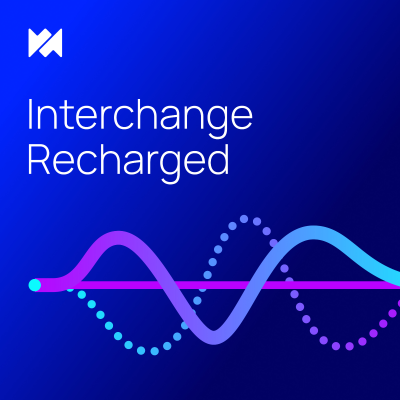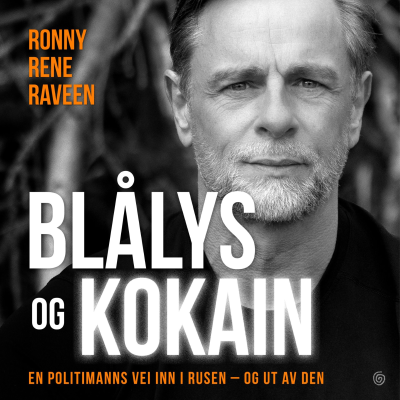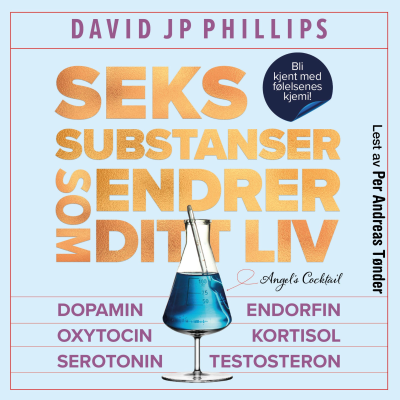
Interchange Recharged
engelsk
Business
Prøv gratis i 14 dager
99 kr / Måned etter prøveperioden.Avslutt når som helst.
- 20 timer lydbøker i måneden
- Eksklusive podkaster
- Gratis podkaster
Les mer Interchange Recharged
Clean tech, green finance and energy innovation are the three lanes on the road to a successful global energy transition. At the intersection of these lanes is a place where ideas on finance, technology and policy are shared and debated. That intersection is Interchange Recharged.While Sylvia Leyva Martinez, principal analyst at Wood Mackenzie, is on maternity leave, Bridget van Dorsten, a principal analyst on Wood Mackenzie's hydrogen team, will be hosting this podcast, Interchange Recharged. When Bridget is not researching global market dynamics to craft near and long-term forecasts for low-carbon hydrogen and its derivatives she is speaking with visionaries, entrepreneurs, policy-makers and energy analysts to explore the newest developments in renewable technology, explain the ideas on global energy policy that could accelerate the energy transition, and identify new funding and financial models that could solve the biggest challenges we face on the way to net zero.Bridget and her guests bring you data and forecasts on clean technology, climate science, and offer predictions on the build out of utility-scale projects and the future of green finance.What impacts do the annual UN Conference of the Parties have on decarbonisation goals and climate change? What will COP30 bring? What’s happening in global EV adoption and development? What’s the forecast for solar energy, one of the major success stories of renewable energy in the last ten years? What does the data tell us about the future of hydrogen, of nuclear, or of low-carbon power? These are examples of the insights and detailed analyses you can expect bi-weekly on Tuesdays at 7am ET.If you like The Energy Transition Show, Catalyst with Shayle Kann, The Big Switch from Columbia University, Open Circuit with Jigar Shah or The Green Blueprint, you’ll enjoy Interchange Recharged. Want to get involved with the show? Reach out to podcasts@woodmac.com to: Bring Bridget and Interchange Recharged to your event Be a guest on the show Sponsor an episode Ask a question to Bridget or one of our guests Check out another leading clean tech global podcast by Wood Mackenzie, Energy Gang, at woodmac.com/podcasts/the-energy-gang Wood Mackenzie is the leading global data and analytics solutions provider for renewables, energy and natural resources. Learn more about Wood Mackenzie on the official website: https://www.woodmac.com/
Alle episoder
339 EpisoderBuilding the plane while it’s flying: data centers, utilities, and the new rules of power
After more than a decade of flat demand, the US power sector is now facing explosive growth, arriving faster than grids, generation, and transmission can be built. In this episode, Interim host of Interchange Recharged Bridget van Dorsten is joined by Chris Seiple, Vice Chairman of Power & Renewables at Wood Mackenzie, to unpack one of the defining challenges facing the modern energy system: how utilities, developers, and policymakers are responding to an unprecedented surge in electricity demand driven by data centres, AI, and reshoring manufacturing. Bridget and Chris explore what makes this moment different, why planning cycles are colliding with short technology investment horizons, and how this mismatch is forcing a fundamental rethink of how the power business works, from energy policy to energy finance. The main point is that the difference between regulated and deregulated markets is widening, as vertically integrated utilities strengthen their advantage in managing large loads. New mechanisms like large-load tariffs are reshaping rate design, investment risk, and affordability - Chris explains how. Plus, deregulated markets may be approaching a tipping point, as traditional price signals struggle to accommodate demand arriving at this scale and speed. What does it all mean for energy? Crucially, the episode looks beyond the immediate crunch to the longer-term implications for the energy transition. From renewable energy and solar energy pipelines to grid resilience, transmission innovation, and behind-the-meter solutions, this demand boom could become a powerful catalyst for clean tech, clean technology, and energy innovation, even as subsidy regimes change and capital costs rise. The discussion also touches on the role of hydrogen, nuclear, and emerging grid technologies in supporting future energy projects, and why this period of rapid load growth may ultimately accelerate decarbonisation rather than slow it. If you’re tracking climate policy, climate change, green finance, and long-term energy predictions, this episode is for you; hear why today’s data centre boom could shape the next several decades of the power system. See Privacy Policy at https://art19.com/privacy [https://art19.com/privacy] and California Privacy Notice at https://art19.com/privacy#do-not-sell-my-info [https://art19.com/privacy#do-not-sell-my-info].
Fuel cells are powering AI data center demand: they’ve moved from interesting clean tech to major player. How are utilities using them?
US data centre announcements are averaging 435MW a month, and there’s around 175GW of large-load capacity already committed or under construction. AI hyperscalers are looking for innovative ways to meet their energy demands. It’s one of the biggest infrastructure challenges in energy right now: how to deliver reliable, fast power without derailing climate and decarbonisation goals. Joining interim host Bridget van Dorsten is Akhil Batheja, Director of Technology Strategy at Bloom Energy, to unpack why fuel cells have moved from “interesting clean technology” to the epicentre of the data-centre power conversation - and what that shift means for utilities, energy projects, and energy policy. Together they discuss how solid oxide fuel cells differ from turbines, engines and batteries - from efficiency and permitting advantages to “Lego block” scalability - and why “time to power” is becoming the defining metric for data center owners. Bridget and Akhil explore grid resilience and the realities of operating off-grid campuses, how fuel cells can handle spiky AI workloads using supercapacitors, and why a future high-voltage DC architecture could reshape data-centre efficiency. Finally, they look at pathways to cleaner fuels, including hydrogen, renewable energy-linked fuels like biogas/RNG, and carbon capture, plus the role of energy finance and green finance in accelerating climate change solutions across the energy transition. See Privacy Policy at https://art19.com/privacy [https://art19.com/privacy] and California Privacy Notice at https://art19.com/privacy#do-not-sell-my-info [https://art19.com/privacy#do-not-sell-my-info].
AI, and the battle for energy in 2026. What clean energy sources are going to meet demand?
AI is changing the energy system faster than almost anything we’ve seen in decades. Interim host, engineer and energy analyst Bridget Van Dorsten is joined by Ed Crooks, host of Energy Gang and Vice-chair of the Americas at Wood Mackenzie, for a wide-ranging conversation about what’s really driving energy decisions in 2026. From data centres and “speed to power” to energy affordability and US energy dominance, they unpack why reliability, cost and scale are now front of mind for governments, utilities and technology companies. Bridget and Ed discuss which technologies could step up to meet the demand, from long-duration storage and advanced nuclear to geothermal and grid-enhancing technologies, and whether AI itself could help accelerate innovation across the energy system. Then they debate the costs; how much does AI really cost us in emissions and capital that could arguably be better spent elsewhere. Are data centres out-competing the energy transition for capital and grid access? And what happens if today’s AI investment boom starts to cool, or the bubble bursts? See Privacy Policy at https://art19.com/privacy [https://art19.com/privacy] and California Privacy Notice at https://art19.com/privacy#do-not-sell-my-info [https://art19.com/privacy#do-not-sell-my-info].
How are key renewable energies faring at the end of 2025? Guest host and energy analyst Bridget van Dorsten talks through developments in geothermal, hydrogen and wind.
At the start of the year things were looking uncertain for nascent renewables like hydrogen and geothermal. With policy support from the previous US administration they had boomed with the IRA, then came July 2025 and the Trump administration’s One Big Beautiful Bill, which tore up tax credits and removed incentives for those renewable technologies. As we approach the end of the year, has anything changed for the better? How are hydrogen, wind and geothermal looking as we prepare for 2026? Regular host Sylvia Leyva Martinez is on maternity leave until the middle of next year, so her fellow energy analyst Bridget van Dorsten is stepping up to keep the mic warm. Bridget is an analyst researching hydrogen, but she has an engineer’s understanding of technologies across the energy spectrum. She doesn’t just cover that ‘frustrating, inefficient, expensive-to-move-around molecule’ (as she calls it); she knows what’s real in the energy world and what’s just hype. To kick off her tenure as host she’s picked out a few highlights from the year relating to those important renewables – geothermal, hydrogen and wind. Looking back on those conversations Sylvia had with experts on those fields, Bridget then gives the energy analyst’s view on how things are progressing in the current policy environment. Expect in-depth analysis on what’s changed, and the key stats and forecasts you need to know as 2026 approaches. Plus, Bridget looks back on the conversation Sylvia had with energy investors back in July, when we saw the oil and gas majors like Shell and Equinor announce they were scaling back their climate ambitions under pressure from investors. Bridget explores why the energy transition is unfolding slower than expected, how shareholder pressure is reshaping low-carbon strategies, and why companies like TotalEnergies and Shell have retreated from their plans to phase down fossil fuels. Bridget will be hosting until mid-next-year, and she wants to know what topics you want explored. Connect with the show and let us know what you want to hear, on LinkedIn, X or Bluesky at @interchangeshow, and follow the podcast so you don’t miss the episodes coming in the new year. See Privacy Policy at https://art19.com/privacy [https://art19.com/privacy] and California Privacy Notice at https://art19.com/privacy#do-not-sell-my-info [https://art19.com/privacy#do-not-sell-my-info].
Energy policy, technology, and utility challenges: How industry leaders are overcoming barriers
Utility-scale clean energy projects in development are still facing connection queues and regulatory barriers. RE+ may be done for 2025, but the debate is still going. Host Sylvia Leyva Martinez, Research Director at Wood Mackenzie, sits down with three leaders who are driving progress from different corners of the energy transition, from utility-scale project development to digital grid optimisation and solar system reliability. Sylvia Leyva Martinez and her guests discuss how federal and state regulations shape project timelines and financing, the latest innovations in the grid and the future of interconnection studies, the supply chain outlook for developers and technology providers, and how policy and software are converging to accelerate the energy transition. In this episode you’ll hear from: Angela Amos from AES Clean Energy - As Director of Commercial Strategy & Innovation, Angela brings a unique vantage point that bridges policy, finance, and market execution. Drawing on her experience at AES, Uplight, and FERC, Angela shares how developers are navigating an evolving regulatory landscape, adapting to federal and state policy shifts, and rethinking how technology integration shapes long-term strategy. She also discusses how AES is approaching supply chain partnerships and what “innovation” really looks like at a global energy developer. Lindsey Williams from Shoals Technologies Group - Lindsey is VP of Marketing & Communications at Shoals, and she joins Sylvia to unpack the latest in solar and storage performance. Building on Shoals’ recent focus on EBOS (Electrical Balance of System), Lindsey reflects on how component design, reliability, and digital monitoring are redefining project outcomes. She also shares what she heard from the floor at RE+, including the big industry talking points shaping developer confidence and long-term investment certainty in clean energy infrastructure. Inalvis Alvarez Fernandez from Simple Thread - Inalvis is a Senior Energy Technology Engineer at Simple Thread, and she explains how digital tools like Minerva are helping reduce project backlogs, streamline utility processes, and unlock grid capacity faster. Inalvis also discusses the challenges clean energy companies face scaling renewables and how regulatory clarity can enable more efficient technology deployment. See Privacy Policy at https://art19.com/privacy [https://art19.com/privacy] and California Privacy Notice at https://art19.com/privacy#do-not-sell-my-info [https://art19.com/privacy#do-not-sell-my-info].
Velg abonnementet ditt
Premium
20 timer lydbøker
Eksklusive podkaster
Gratis podkaster
Avslutt når som helst
Prøv gratis i 14 dager
Deretter 99 kr / måned
Premium Plus
100 timer lydbøker
Eksklusive podkaster
Gratis podkaster
Avslutt når som helst
Prøv gratis i 14 dager
Deretter 169 kr / måned
Prøv gratis i 14 dager. 99 kr / Måned etter prøveperioden. Avslutt når som helst.















































